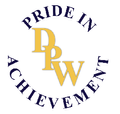Community Information

Speech Box
Professional Reading: The latest from Speech Box
Supporting Vocabulary - practical ways to grow vocabulary
What is vocabulary?
Vocabulary is all the words we know, understand, and use. We learn new words in two main ways: by hearing them and by reading them. Children can learn new words through talking and interacting with family, friends and at school and by reading storybooks together (Beck, McKeown, Kucan, 2013).
The importance of vocabulary
Research shows that a strong vocabulary is important for school success (McKeown, 2019). As children progress in school, they need to understand and use more complex words, including specific words for different subjects (e.g., science words like "organism" and "synthesis") and words that help explain what they need to do for assignments (e.g., "discuss," "explain," "define").
Practical ways to help children grow their vocabulary at school and at home:
- Talk about word meanings
Talk about new words your child hears. For example, if they hear the word "curious," explain that being curious means wanting to learn new things. You can write the word down, keep it on the fridge, and discuss it at the dinner table. - Use new words in sentences
Encourage your child to make sentences with new words. For example, if the new word is "adventure," they can say, "We had an exciting adventure in the forest." - Explore word groups
Help your child see how words are related by grouping similar words. For example, if you're talking about "animals," discuss different types, like mammals, birds, and reptiles. - Learn similar words (synonyms)
Expand their vocabulary by learning words with similar meanings. For example, for "happy," you can introduce synonyms like "joyful," "content," or "excited." - Learn opposite words (antonyms)
Teach them opposites to deepen their understanding of words. For example, if the word is "hot," you can discuss its opposite, "cold."
Remember, building vocabulary is an ongoing process! Daily conversations, reading together, and playing word games are great ways to help your child develop their vocabulary.
Copperfield College
At Copperfield College we run campus tours throughout each term. These tours are run by Campus Principals and give families a chance to see the campus and ask questions about Copperfield College.
We kindly ask that you promote our school tours in term 4 to your students and families which will be held on:
Wednesday November 13th – 2pm
To book a tour, families can contact the general office on the below numbers for the campus they wish to visit:
Sydenham – 9361 3888
Kings Park – 9365 4111
Delahey – 9307 5555
Any questions please don’t hesitate to reach out to our Transition leading teacher – Tina Tsaloukis or the campus general office.

